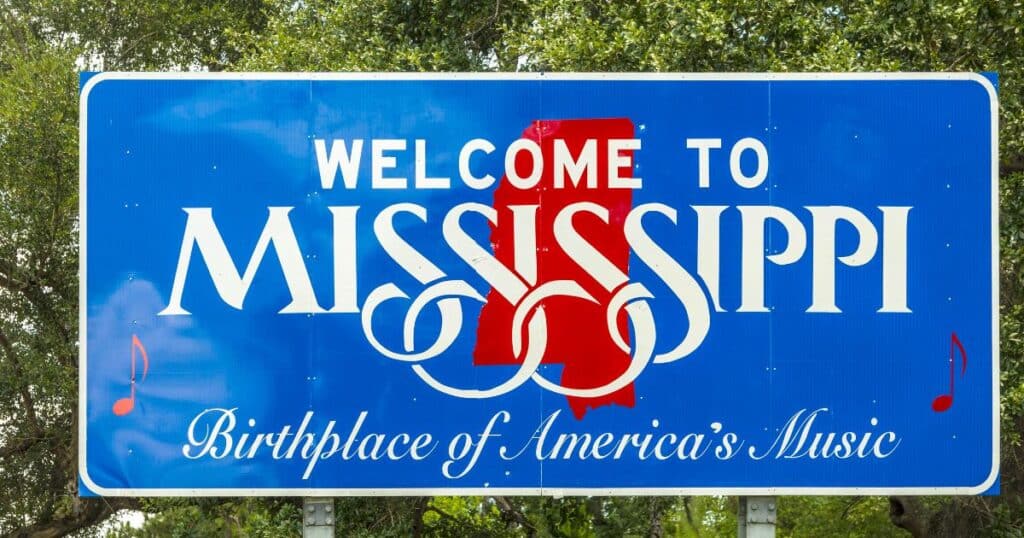Recent events in the evolving space of cannabis legislation in Mississippi have underlined a contentious issue that treads on an individual’s right to promote a legal business in a fledgling industry. The restrictions levied on medical marijuana advertising are not merely red tape on the entrepreneurial path but stumbling blocks that hamper the growth potential of an entire sector.
But what is the crux of the conflict, and what implications could such legal constraints have on the future of cannabis commerce in the state?

In the fall of 2022, Mississippi entered the arena of medical marijuana by legalizing the practice for individuals with certain debilitating conditions. This legislative leap not only promised new hope for patients but also triggered the launch of a nascent market ripe with business potential.
However, a sharp turn in the course followed; Clarence Cocroft II, an entrepreneur, and owner of Tru Source Medical Cannabis, found himself enmeshed in a legal tussle with the state over regulations that echo prohibition-era stringency – especially when it comes to promoting his business.
The stated regulations categorically bar medical marijuana establishments from traditional advertising venues, spanning print and broadcasting media, to the most compelling of them all: billboards. The law’s grip is stringent, disallowing even the mention of marijuana products in a digital domain unless it is on the retailer’s website, an almost arcane maneuver in today’s interconnected world.
Cocroft’s setback as first reported by AP News is more than a personal hurdle; it’s a microcosm of the yet unresolved conflict between state and federal stances on a product now considered mainstream in a significant portion of the United States.
A Federally-Forged Fortress
The heart of Mississippi’s argument is rooted in the federal illegality of marijuana – a banner under which many states seek shelter to curtail its advertising and in turn, its sale. U.S. District Judge Michael P. Mills in his recent ruling echoed the state’s sentiments, aligning with the assertion that because marijuana possession remains illegal under federal law, it fails to qualify for the constitutional protection generally afforded to commercial speech.
“Plaintiffs thus argue that Congress and President Biden have ‘all but’ made the possession of marijuana lawful, which strikes this court as a tacit admission that it still remains illegal under federal law,” wrote Mills.
“This is particularly true considering the fact that, by legalizing marijuana to any degree, the Mississippi Legislature has gone further than Congress itself has been willing to go,” Mills wrote. “In light of this fact, on what basis would a federal court tell the Mississippi Legislature that it was not entitled to dip its toe into the legalization of marijuana, but, instead, had to dive headfirst into it?”
On the unwittingly evocative side, Mills hinted that the state may flex its advertising muscle if and when federal levers change on marijuana, a realm currently being discussed within the DEA corridors that might one day alter the prohibition narrative threaded across the harsh regulatory fabrics.
The Plaintiff’s Stalwart Stand
For Cocroft, the battle is far from over. The denied right to broadcast his dispensaries’ existence and offerings echoes a larger narrative of oppression against an industry striving for the respect and treatment accorded to any standard industry.
In the face of the Constitutional question, his position remains resilient. Cocroft, bolstered by the Institute for Justice – a legal guardian for libertarian causes – has announced intentions to elevate the appeal to higher echelons, marching into the 5th U.S. Circuit Court of Appeals.
“I’m prepared to fight this fight for as long as it takes,” Cocroft said. “This case is bigger than me and my dispensary – it is about defending the right of everyone to truthfully advertise their legal business in the cannabis industry.”
The underlying vigor of Cocroft’s stance is not just about his dispensary and its existence; it’s about the sanctity of the First Amendment and the right of individuals to market products that are part of legitimate trade. The appeal’s journey could potentially open new pathways in interpreting and executing federal principles in emerging business sectors.
The Industry’s Awaited Expansion
Given the uncertainty shrouding the future of marijuana advertising in Mississippi, changes in federal outlook or a decisive turn in the state’s regulations could be the keys to unlocking opportunities or closing them.
The current landscape paints a stark picture, marking Mississippi as one of the states with the tightest advertising restrictions in the cannabis domain – a status that isn’t boast-worthy when a new industry requires all the standard marketing mechanisms to thrive and stabilize.
The reverberations of this legal struggle are being felt far and wide, beckoning a discourse on the necessity of a balance between prohibition-era apprehensions and the regulatory freedom required for any industry to advertise and function legitimately. The audiences of this narrative aren’t merely the traders and entrepreneurs; they also encompass the consumers, the social fabric, and the economic tapestry counting on the proper propagation of information.

Framed between the articles of the law and the aspirations of business, Mississippi presents a canvas where an individual’s fight against suppressive advertising laws is more than just legalese. It is about fairness, the future, and the freedom of a legal industry to exert its rights.
As we chart the progression of this saga, the shadow of what’s unfolding in Mississippi cannabis falls far beyond its borders, offering insights into a pivotal synthesis of state sovereignty, federal provision, and an industry finding its feet amidst conflicting tides.
Clarence Cocroft’s indomitable pursuit is a torchbearer, not just for Mississippians but for every state grappling with the conundrum of cannabis legislation. It reminds us that legal roadblocks aren’t mere hindrances; sometimes, they speak volumes about the need for reform and reconciliation.
At a juncture where medical and recreational marijuana industries are burgeoning and evolving economies are tracing out opportunities, the Mississippi dispensary owner’s struggle carries a weighty message – a well-argued advertisement tailored to the ears and hearts of those who seek a balanced, fair, and fruitful regulation of the cannabis sector.

















